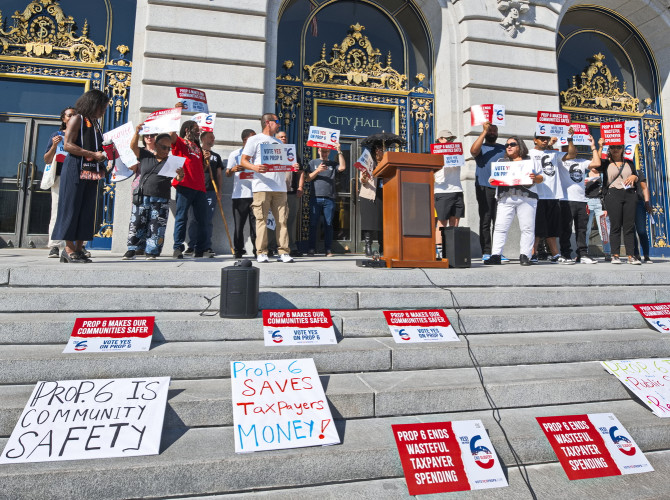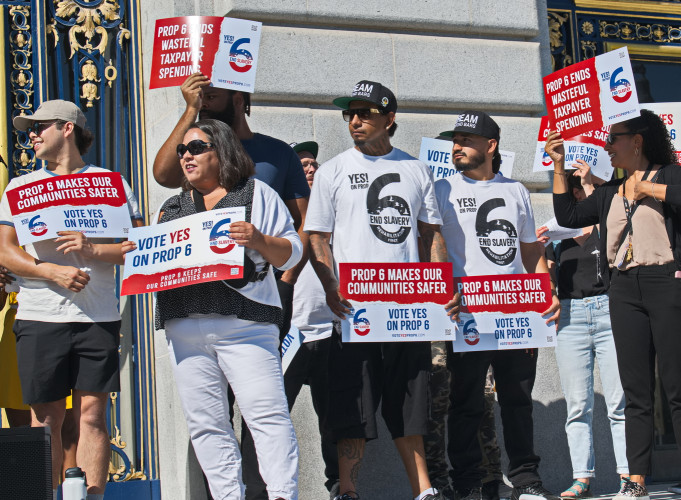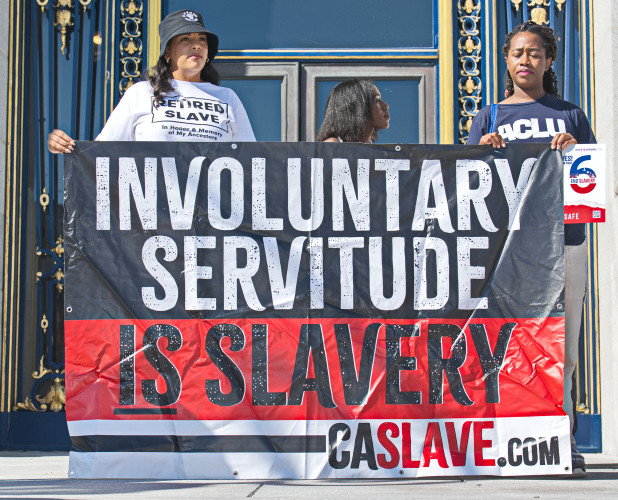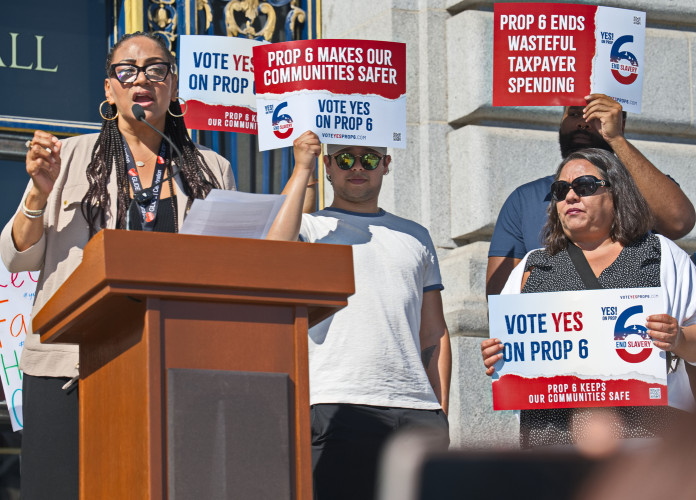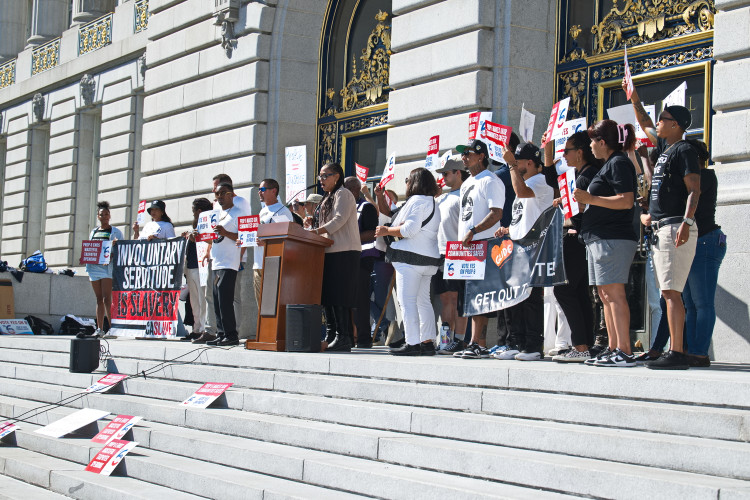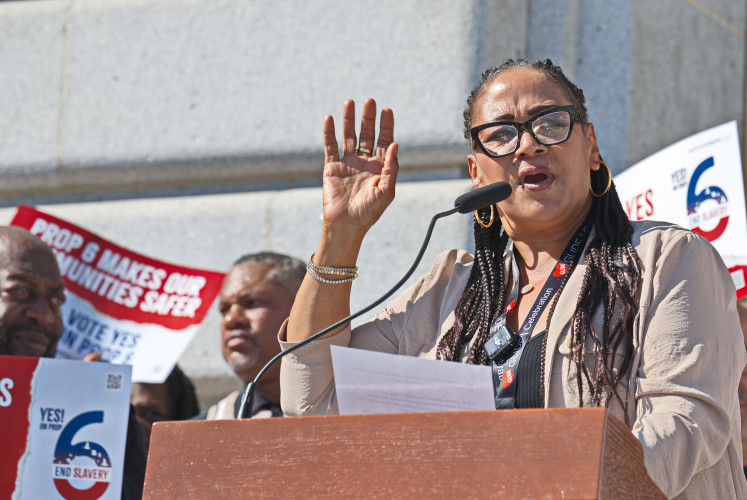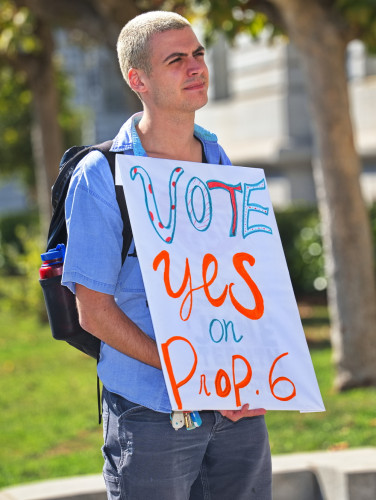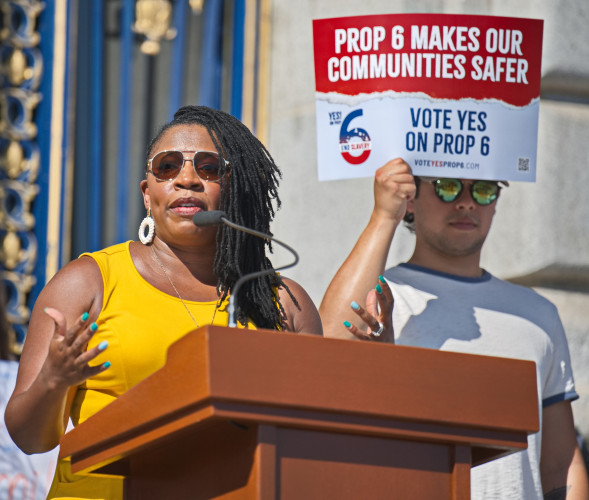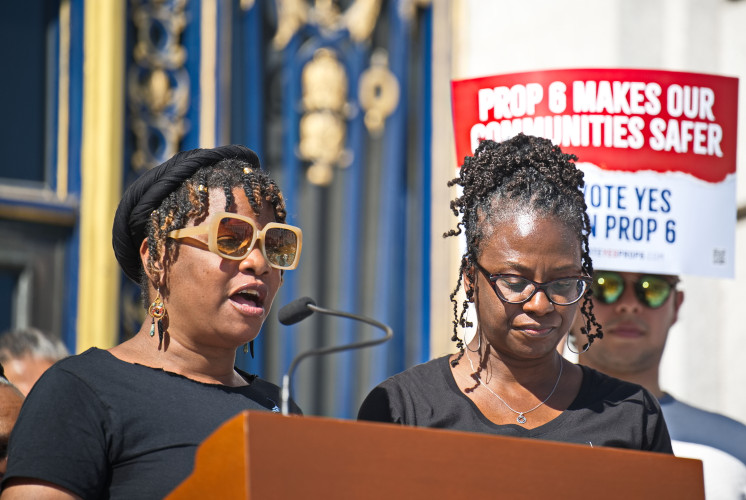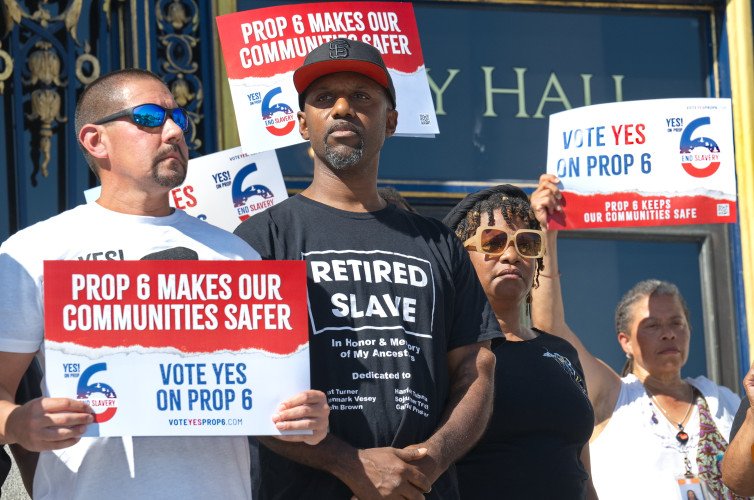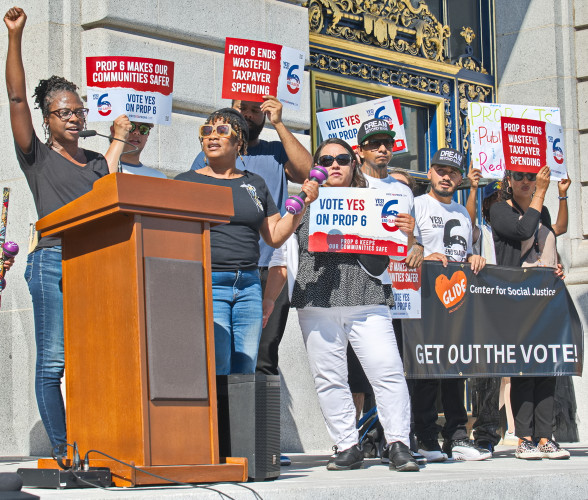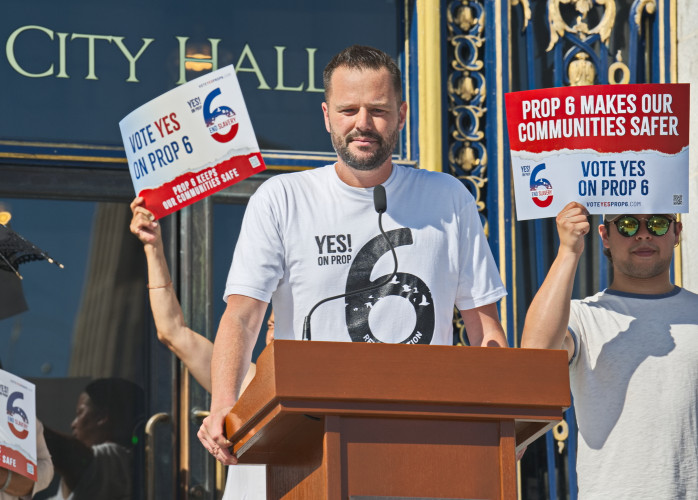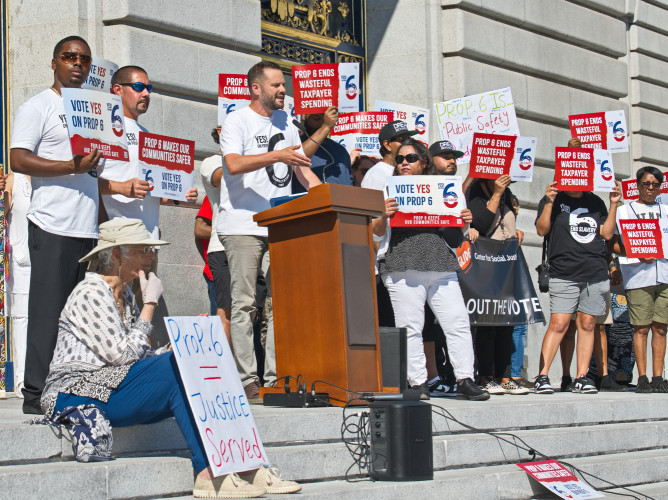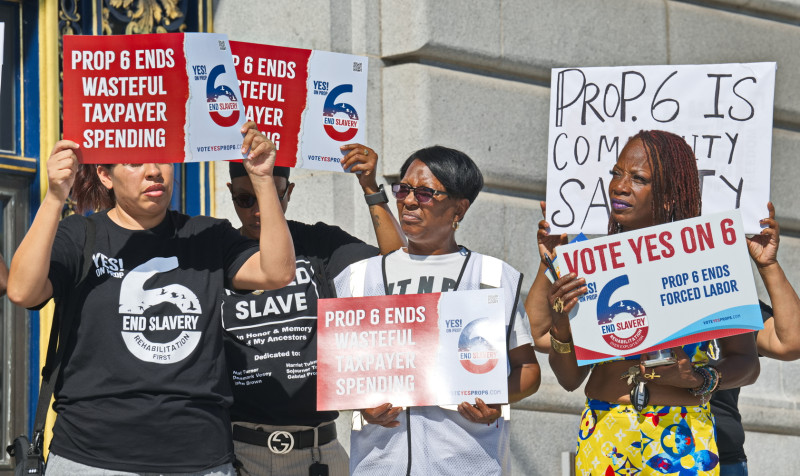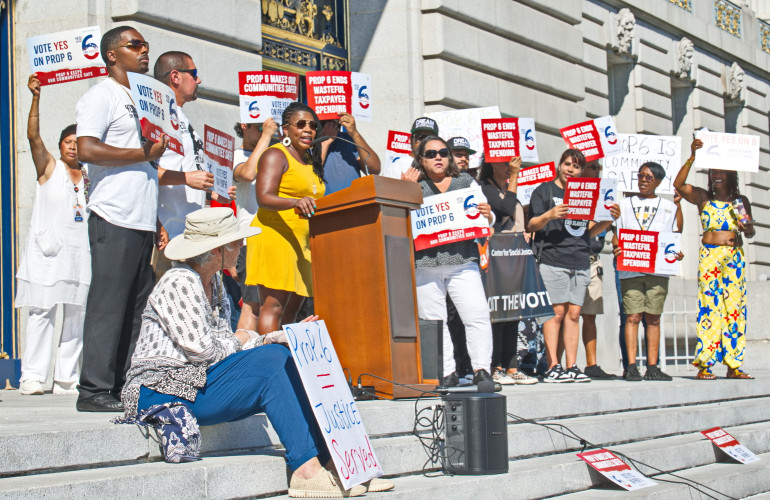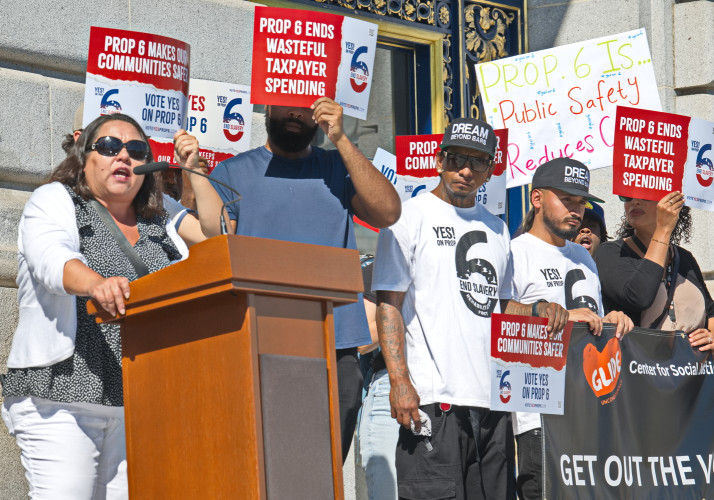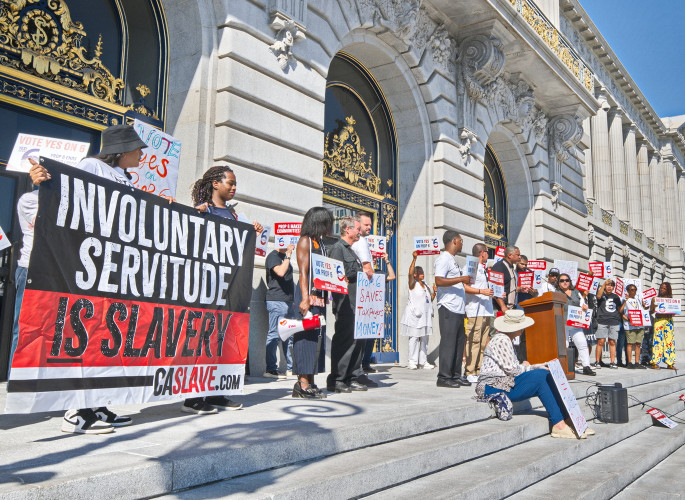From the Open-Publishing Calendar
From the Open-Publishing Newswire
Indybay Feature
Rally for Statewide Campaign to Pass Prop 6
Proposition 6 would improve safety and save taxpayer dollars by prioritizing rehabilitation in California prisons
Photos: Leon Kunstenaar / Pro Bono Photo
(SAN FRANCISCO, Oct. 2) —Today, community leaders and lawmakers joined in San Francisco to support Proposition 6, the statewide ballot initiative to enhance safety and save taxpayer dollars by prioritizing rehabilitation in California prisons. Advocates, elected officials, and persons with lived experience joined for the rally, with impacted individuals speaking about their experiences being forced to work while often being deprived of rehabilitative programming that would have better prepared them to succeed upon their release.“California voters have the opportunity to right a historic wrong embedded in our state constitution and make our communities safer,”said Assembly member Matt Haney. “I am proud to support Prop 6 because ending forced prison work will prioritize rehabilitation. Prop 6 will help those released fom incarceration to have a fair shot of reentering society successfully reducing recidivism and crime.”
To shift the focus at the California Department of Corrections (CDCR) back to rehabilitation and end slavery in all its forms, Proposition 6 amends the California Constitution to prohibit the state from punishing incarcerated individuals with involuntary work assignments and disciplining those who decline to work. The state’s prison system employs nearly 40,000 incarcerated individuals who complete a variety of tasks such as construction, yard work, cooking, cleaning, and firefighting. Under Proposition 6, state prisons could set up a volunteer work assignment program. By ending involuntary servitude, incarcerated individuals won’t be punished if they decline work in favor of programming that makes them less likely to re-offend upon their release.
“Passing Proposition 6 will make our communities safer and support our community members to succeed,” said Dr. Gina Fromer, President & CEO of GLIDE Foundation. “Facilitating greater access to rehabilitative services like education and substance use treatment for incarcerated people will improve reentry outcomes. At GLIDE, we have worked for decades to break cycles of poverty and marginalization for low—income San Franciscans, and we know that people can thrive through education, opportunity, supportive services, empathy, and respect.”
Many of these individuals suffer from mental health challenges, substance use disorder, and anger management issues, but instead of receiving the treatment they desperately need, they are forced into labor. Beyond treatment, many could get access to higher education while in prison, better preparing them to succeed upon their release, but instead of allowing them to earn a degree and break the cycle of incarceration, the system forces them into menial jobs that offer no future.
“Today, when California decides to hold someone accountable with a prison sentence, it's in everyone's interest that, upon their release, these individuals have the tools they need to turntheir liyes around and never return,” said Paul Briley, Executive Director of Legal Services for Prisoners with Children (LSPC). “That's how California can reduce crime, prevent victimization, and reduce taxpayer spending on a bloated prison system.” In 2022, voters in Alabama, Tennessee, Oregon, and Vermont voted to remove slavery and involuntary servitude from their states’ constitutions. In November, California voters can weigh in on this historic ballot measure, taking a stand to remove language in our constitution that is a threat to human dignity and justice for all.
“When Governor Jerry Brown appointed me to the California Department of Corrections and Rehabilitation, I was able to see ?rsthand what slavery looks like inside our prisons—it is a barrier to rehabilitation,” said Carmen-Nicole Cox, Director of Government Affairs for ACLU California Action. “I have also worked as a California prosecutor, so I know that prison slavery does not reduce recidivism or facilitate accountability. I am voting yes on Prop 6 because it responsibly prioritizes rehabilitation, which is proven to reduce recidivism, enhance public safety, and save taxpayer dollars.”
GLIDE is a nationally recognized center for social justice, dedicated to fighting systemic injustices, creating pathways out of poverty and crisis, and transforming lives. Through our integrated comprehensive services, advocacy initiatives, and inclusive community, we empower individuals, families, and children to achieve stability and thrive. GLIDE is on the forefront of addressing some of society’s most pressing issues, including poverty, housing and homelessness, and racial and social justice. GLIDE’s mission is to create a radically inclusive, just, and loving community mobilized to alleviate suffering and break the cycles of poverty and marginalization.
Our Core Values emerge from GLIDE as a spiritual movement. They are rooted in empowerment, recovery, and personal transformation. Our values inspire and guide our behaviors. They are the ground we stand on.
Add Your Comments
We are 100% volunteer and depend on your participation to sustain our efforts!
Get Involved
If you'd like to help with maintaining or developing the website, contact us.
Publish
Publish your stories and upcoming events on Indybay.
Topics
More
Search Indybay's Archives
Advanced Search
►
▼
IMC Network


